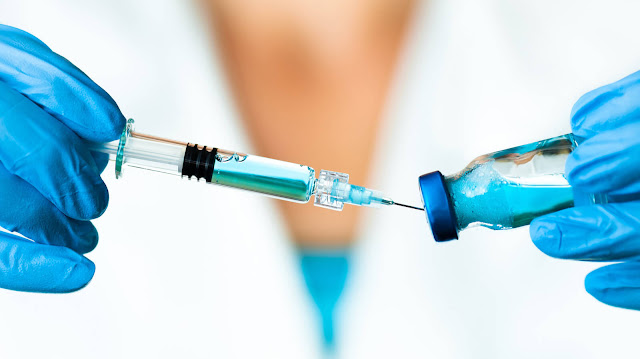The Increasing Burden of Diseases in the World Is Augmenting the Growth of the Global Human Combination Vaccines Market
 |
| Human Combination Vaccines Market |
Human Combination Vaccines Market, by Product Type
(Inactivated Vaccine and Live Attenuated Vaccine), by Age Group (Children and Adults),
by Combination Type (DTaP/IPV/Hep B, DTaP/Hib/IPV, MMR II, Hep B-Hib, and
Others), by Distribution Channel (Hospital pharmacies, Retail pharmacies, and
Online Pharmacies) and by Region (North America, Europe, Asia Pacific, Latin
America, Middle East, and Africa) - Global Industry Insights, Trends, Outlook,
and Opportunity Analysis, 2022-2028.
Market Overview:
Human combination vaccines are vaccines that
incorporate multiple antigens or immunogens to protect against multiple
diseases in a single vaccine formulation. These vaccines are designed to
simplify the vaccination process by reducing the number of injections required
and improving patient compliance. Rather than administering separate vaccines
for each disease, a combination vaccine combines antigens from different
pathogens into a single vaccine product.
Competitive Landscape:
Major players operating in the global human
combination vaccines market include NPS MedicineWise, Takeda
Pharmaceutical Co. Ltd., CNBG, Emergent BioSolutions Inc, PaxVax Corporation,
Biological, Influvac, AstraZeneca, Moderna, Serum Institute of India, Meiji
Holdings Co. Ltd, Mass Biologics, Crunchbase Inc., Merck & Co., DAIICHI
SANKYO COMPANY, LIMITED, Mitsubishi Tanabe Pharma Corp., CSL Ltd.,
GlaxoSmithKline plc, Cadila Healthcare Ltd., Pfizer Inc., and Sanofi.
Key Market Drivers:
Combination vaccines offer convenience by delivering
protection against multiple diseases in a single administration. This
simplifies vaccination schedules, reduces the number of healthcare visits, and
improves patient compliance, especially in pediatric populations. This is
expected to augment the growth of the global human combination vaccines market.
Human combination vaccines ensure broader protection
against multiple diseases, including measles, mumps, rubella, diphtheria,
pertussis, tetanus, and others. The comprehensive coverage provided by
combination vaccines is a significant driver for their adoption, particularly
in regions with high disease burdens. For instance, in May 2020, International
AIDS Vaccine Initiative and Merck & Co., Inc. partnered in order to develop
a novel vaccine candidate for COVID-19.
Combination vaccines offer cost advantages by
reducing the number of individual vaccines required and associated healthcare
visits. This is particularly beneficial in resource-constrained settings, where
it streamlines immunization programs and optimizes healthcare resources.
Advances in vaccine technology have facilitated the
development of safe and effective combination vaccines. The introduction of
newer adjuvants, improved antigen selection, and formulation techniques have
enhanced vaccine efficacy, which is estimated to enhance the growth of the
global human combination vaccines market.
Covid-19 Impact
Analysis:
The urgency of the COVID-19 pandemic has led to a
surge in vaccine research and development efforts worldwide. This heightened
focus on vaccines, including novel technologies such as mRNA vaccines, has
accelerated advancements in the field and could have long-term positive implications
for the global human combination vaccines market. For instance, in 2020, Sanofi Pasteur
extended its partnership with Translate Bio, in order to create a novel mRNA
vaccine candidate for COVID-19.
Key Takeaways:
·
North
America is expected to dominate the growth of the global human combination
vaccines market, owing to robust healthcare infrastructure, high awareness
about vaccination, and strong immunization programs. The region also benefits
from extensive research and development activities in the field. For instance,
in July 2020, Medicago and GSK partnered in order to introduce a COVID-19
adjuvant vaccine candidate.
·
The
Asia Pacific is estimated to witness high growth in the global human
combination vaccines market, owing to a large population, high disease burden,
and increasing investments in healthcare infrastructure. Government initiatives
to improve vaccination coverage and growing awareness about immunization
further fuel market growth. For instance, according to AmbitionBox, there are 175
major biotechnology companies in India.



Comments
Post a Comment